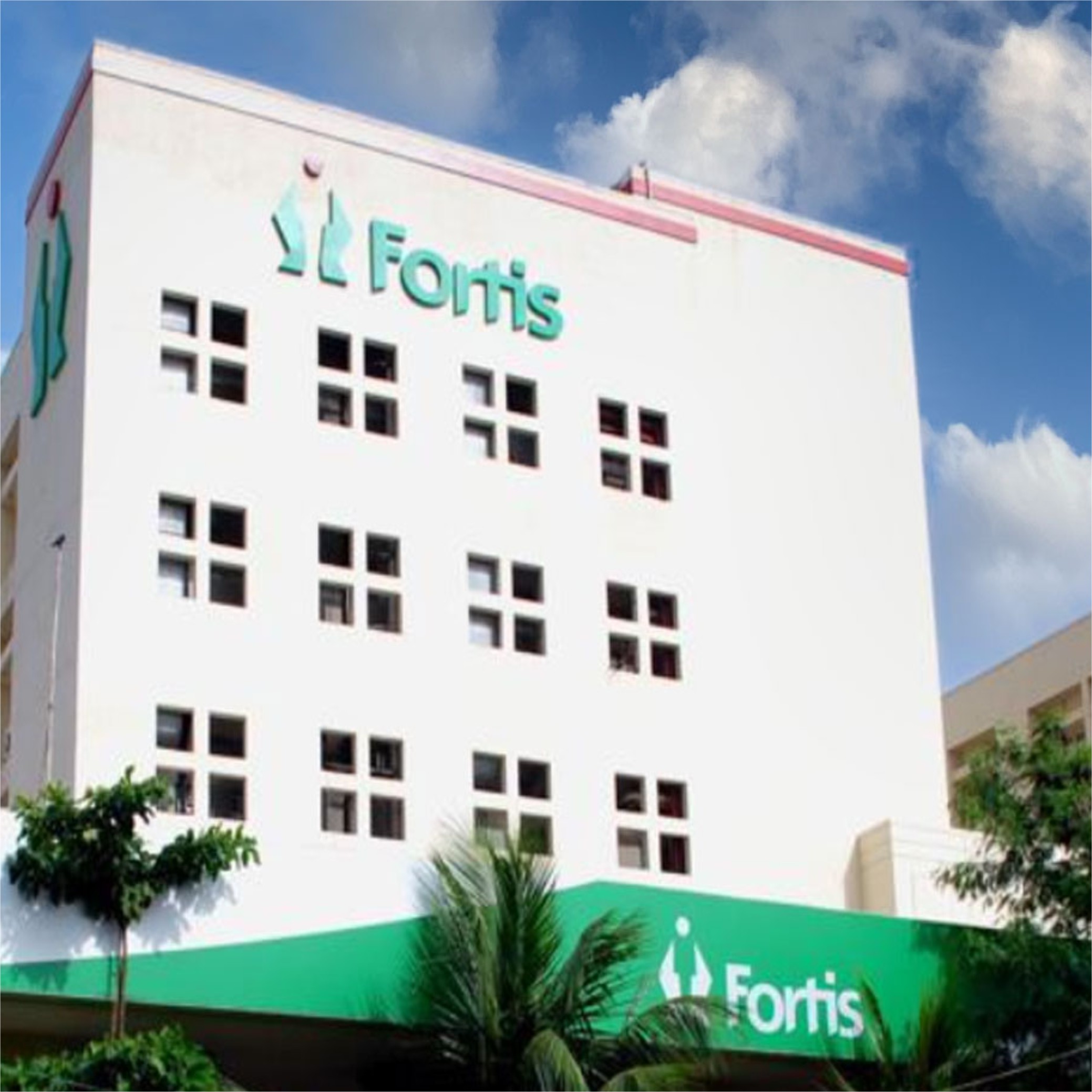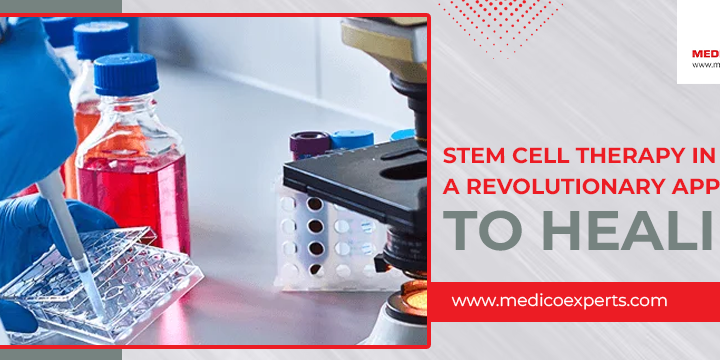Hip pain treatment without surgery through stem cell therapy in India
How can hip pain stop your monthly income, dreams, and health?
Hip pain can make you bedridden if you don’t treat it at the right time. Hip pains are at times are unbearable pain and even increase during body movement. Slowly your day-to-day activities such as walking, cooking, bathing, and sleeping will start deteriorating.
Let’s understand it from the experience of one of our patients.
Martha is one of our patients who was suffering from hip pain and was very happy after the treatment. She is from Cape Town, South Africa. She is a 59-year-old small business owner. She is an independent woman with lots of ambition and love to visit different places around the world.
Her hip pain has started becoming a barrier to her dreams. She was having unbearable hip pain which used to radiate with body movement. Her focus and concentration were also getting lost during work due to hip pain. A stage came where she had to stop going to her office.
Her absence from the office impacted the business and she was even looking to close her office. Her profitable business started throwing losses.
Martha looking for hip pain treatment without surgery.


She had done thorough evaluations and done suggested physiotherapy, but it didn’t help her condition. With deteriorating conditions, her doctors have recommended total Hip replacements. She didn’t want to undergo Hip replacement due to some bad experience of hip replacement with her elder sister.
She consulted MedicoExperts orthopedic surgeons from India for a second opinion. Medicoexperts orthopedic surgeon also recommended her bilateral total hip replacement. But She was absolutely firm on her decision that she would not go for surgery.
This is the time she requested MedicoExperts to suggest alternative treatments to avoid surgery.
Martha, thereafter, got to know an option of stem cell therapy for hip pain. That was promising enough to defer hip replacement by at least 7 to 10 years.
After understanding all the pros and cons and probable outcomes, She decided to come to India for stem cell therapy. After four weeks of stem cell therapy for the hip, her pain started reducing. Stem cell doctors suggested she reduce the dosages of painkillers.
Eventually, she is out of painkillers. Today, she can walk for a longer distance without pain. She has resumed her office and her focus and concentration have put her company back on profit routes.
Let’s understand what hip pain is.
Hip pain is a symptom that can occur due to several conditions, including arthritis, injuries (fracture, labral tears, and dislocation), and bursitis(small fluid-filled sacs).
It can occur at any age, but older people are much more likely to have hip pain. Sports athletes and dancers who move the hip in all directions are much more likely to have hip pain due to overuse.
You may experience pain on the outside of your hip or in your buttock through problems with your lower back can also cause this.
You might also experience a problem in your hip joint, pain in the groin down the front of the leg until the knee.
Let’s check what signs and symptoms you will get when you are having hip pain are.
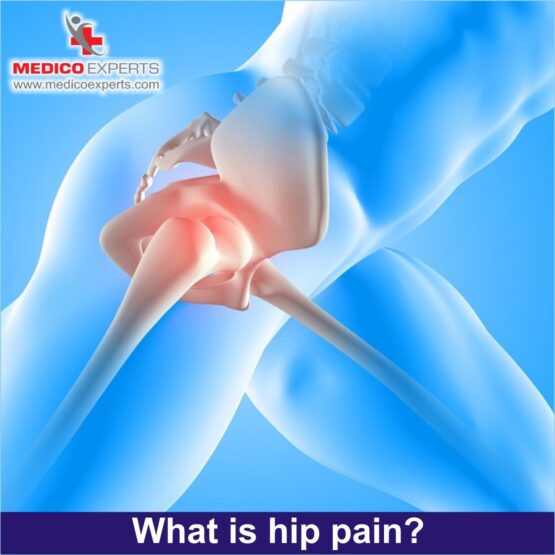
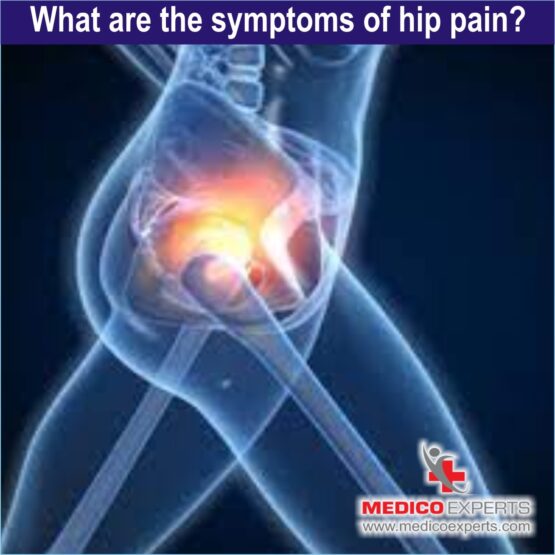
Symptoms associated with hip pain depend on the cause.
Some of the signs and symptoms include:
- Limping,
- Joint pain,
- Groin pain,
- Loss of motion of the hip,
- Warmth,
- Swelling over the hip,
- Tenderness of the hip,
- Difficulty sleeping on the hip
These symptoms may vary in intensity from mild to severe.
Hip pain can be a cause of disability. Let’s understand what the causes of hip pain are.
What are the causes for hip pain?
Inflamed tendons or tendonitis is the most common cause of acute hip pain. Too much exercise and sudden overuse of the hip will cause inflamed tendons. Inflamed tendons might be very painful, but it usually heals within a few days.
Arthritis is the most common cause of hip pain and can affect it for a long time. It can cause pain, stiffness, and tenderness in the joints, making walking difficult. Arthritis is of many types; some of them which affect the hip are:
- Osteoarthritis: It is the result of age-related wearing down of the cartilage that surrounds the joints.
- Trauma: A fracture may cause traumatic arthritis like osteoarthritis.
- Infectious arthritis: It is caused due to an infection in the joint that is causing the deterioration of cartilage.
- Rheumatoid arthritis: It is an autoimmune and inflammatory disease. In this condition, our body’s immune system is attacking our joints by mistake. Rheumatoid arthritis may eventually destroy joint cartilage and bones.
Trochanteric bursitis is swelling of the bursa (fluid-filled sac) at the hip’s outside (lateral) point. Irritated or inflamed bursa causes pain in the hip.
Some of the factors that might cause trochanteric bursitis were:
- Hip injury
- Overuse of the joints
- Posture problems
- Rheumatoid arthritis
Hip fractures typically occur in accidents and are common in older adults with osteoporosis(weakening of the bones or other factors).
Hip fractures cause very sudden and severe hip pain, and they require immediate medical attention. There might be other complications due to a fractured hip, such as a blood clot in the leg.
A hip fracture usually requires surgery to be corrected, followed by physical therapy to recover.
It is a condition in which you hear a snapping sound or feel a snapping sensation in your hip.
It is a sign of cartilage tear or fragments of material in the hip. It usually occurs when you’re walking or getting up from a chair.
Osteonecrosis, or avascular necrosis, In this condition, blood doesn’t reach the bones, either temporarily or permanently. Loss of the supporting bone started gradually.
In this condition, the cartilage is normal initially but will eventually collapse as it progresses with time. This can lead to break or crumble the bone.
Joint injury, heavy use of steroid medications, alcohol, and cancer treatments can also lead you to be at greater risk for this condition. But in most of the other cases, the cause is never determined.
Suppose you feel the pain for more than two weeks, then it’s the correct time for a check-up. The doctor will perform a physical examination and might also run imaging tests to diagnose the cause.
The doctor in the physical examination will often move or push your leg in different directions, looking for resistance, a popping sensation, or pain. These can indicate the source of the hip problem.
To confirm the cause diagnosis test is to be performed like:
Imaging tests:
Imaging tests are used to diagnose hip disorders, which includes:
X-rays are performed to find out what’s wrong with your hip as they show the condition of the bones. They may also indicate problems in your pelvis, which could explain your pain.
A CT scan can often be very helpful to work out if the hip joint has an unusual shape. CT scans use x-rays to show sections or ‘slices’ of the hip, which a computer then puts together to form a 3D image of the hip.
There are conditions where the hip socket can be very shallow, and a CT scan can show this.
MRI scans use radio waves to build a picture to show what’s happening to the soft tissue, such as the muscles and tendons, inside your hip. They’re particularly helpful for diagnosing the painful condition of avascular necrosis, which reduces the flow of blood to the ends of the bone, causing them to collapse.
Imaging tests allow the doctor to view the hip in detail, like any fractures, deformities, or swelling.
Blood tests are done to identify any infection or rheumatoid arthritis which might be causing the pain.
What are the conventional treatment for hip pain?
If your hip pain doesn’t improve with simple medications like paracetamol and ibuprofen and a mixture of rest and gentle exercises, you should see your doctor for further advice. They may recommend the following treatments:
Non-steroidal anti-inflammatory drugs (NSAIDs)
The doctor will prescribe the drug to control the inflammation and control the causes affecting the hip.
Bisphosphonates
Bisphosphonates are used to treat Paget’s disease of the bone and osteoporosis. They work by slowing bone loss, which reduces the risk of hip fractures.
A physiotherapist may help get your hip moving by showing you a gentle range of movement exercises and activities specific to your condition.
They are trained specialists who can show you how to help reduce your hip pain and improve the way your hip works in the future by using a variety of strengthening and stretching exercises, massage, and other therapeutic techniques.
They’ll work with you to help get your hip moving properly again. Their approach will depend on whether your problem is short-term or a long-standing condition. Almost everyone will benefit from physiotherapy, and they can recommend things such as:
- exercises to strengthen weakened muscles, change co-ordination and improve function
- advice on improving your posture
- exercises to ease or prevent stiffness
- exercises to increase the range of joint movement
- putting adhesive tape on the skin to reduce the strain on the tissues, and to help increase your awareness of the position of your hips and back
- manual treatments to the soft tissues and joints – such as massage and manipulation
- how to walk when your hip hurts
- how to use a walking stick or crutch.
If you think your work or certain activities might be the leading cause of your pain, it’s worth discussing this with an occupational therapist.
An occupational therapist is a specialist trained to help you regain your independence by showing you how to change the way you do things. They can also advise you on how equipment or adaptations could reduce the strain on your hip at home, work, or while you’re driving.
They’ll be able to give you advice on how to change your movements to help prevent pain from continuing or returning. If your place of work has an occupational health department, they may also be able to help.
If your pain has been caused by bursitis or inflammation in or around your hip, steroid injections can help.
They’re often given with a local anesthetic which numbs the area to reduce the pain of the injection. They are usually very helpful in treating conditions affecting the trochanteric area on the outside of the hip.
Sometimes they’re also effective for treating iliopsoas tendonitis – though the injection will need to be given by a radiologist using ultrasound because the iliopsoas tendon is so deep.
A radiologist is a doctor who specializes in imaging techniques – like x-rays, MRI, and ultrasound imaging – and forms a diagnosis from the results. They can use ultrasound to pinpoint the place that a steroid injection would be most effective.
Surgery is not for everyone who has hip pain. If you have hip fractures, it almost always requires surgery to stabilize the bone and hold it in place. Replacement of the ball of the hip may also be necessary.
It’s common for older people to experience hip fractures, which can take a long to recover fully. Some of the hip surgery are:
Hip replacement surgery:
If your hip pain is caused by arthritis and other treatments haven’t helped, your doctor may talk to you about hip replacement surgery. The modern techniques used in a hip replacement make the surgery very safe, and people usually have excellent outcomes after it.
More than 90% of people who have a hip replacement find their pain is greatly reduced.
A modern artificial hip should last at least 15 years.
Usually, you’ll only need to stay in hospital for a few days after surgery. Physiotherapists will help get your hip moving again by showing you simple exercises and ways to do daily activities.
If you’re being considered for hip replacement surgery, you must be in good health and try to keep your weight down.
Your general health will probably be assessed during a hospital appointment before, and your surgeon will also talk to you about the operation. You may also meet the physiotherapists and occupational therapists who’ll be involved in your treatment after surgery.
Revision surgery:
If your hip replacement becomes loose, infected, or otherwise fails, it can be corrected with further surgery. Modern revision surgery techniques are developing quickly, and most failed hip replacements can be dealt with.
You’ll be in the hospital longer than your first hip replacement, and it might take longer to recover.
Acetabular labrum surgery:
Surgery to reshape the hip can improve your ability to move the joint and reduce your pain and stiffness. In some cases, this procedure is performed using keyhole surgery as a hospital day case, or you may stay a night in hospital.
You’ll need between one and two months off work. We don’t currently know whether this operation can stop arthritis from developing in your hip.
Now let’s explore the possibility of hip pain treatment without surgery.
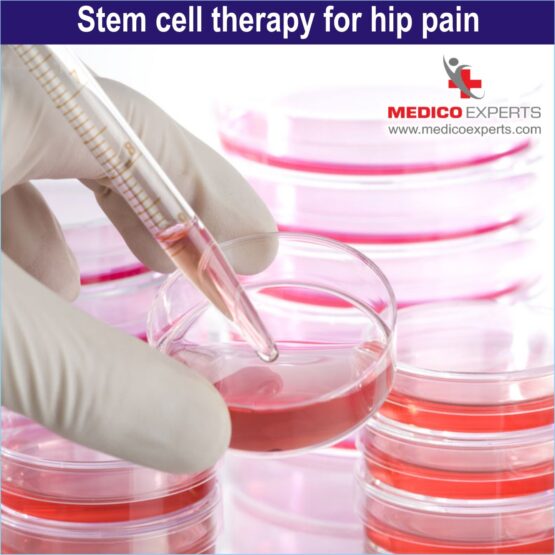
Stem cell therapy for hip pain
Stem cells are found throughout our body and have unique characteristics. They can divide themselves and multiply their numbers.
They don’t perform a specific function but can develop into different cells with a particular function depending on where they are placed.
They can transform themselves to suit the environment they are placed in. For instance, when stem cells are placed near damaged cartilage, they can transform themselves into cartilage tissue later on.
Mesenchymal Stem Cells are the common types of stem cells that are used for treating arthritis. These cells are collected or harvested from the fat, blood, or bone marrow of the patient.
Stem cell treatment for hip joint is a relatively newer alternative method for hip joint pain treatment. This approach to hip joint pain treatment has more advantages when compared to traditional techniques.
This therapy extracts the unique type of cells in our body called the stem cells, usually from an area of high density, and then injects them into the damaged area to help the body heal naturally.
Procedure for hip pain treatment without surgery
While stem cell therapy and hip replacement surgery are both straightforward procedures from an orthopedic standpoint, hip replacement surgery has a higher success rate at the cost of being significantly more invasive.
Stem cell therapy is regenerative, meaning that it helps your body rebuild the damage in your knees naturally using your adult stem cells.
Stem cell therapy is a simple and completely safe procedure that requires only injections and no surgery. In the stem cell procedure, Adult stem cells are taken from the patient’s bone marrow and injected back into the patient after processing them in a specialized stem cell laboratory.
The procedure involves three steps.
Step1: Bone Marrow Aspiration:
In this process, a needle is inserted into the hip bone to extract the bone marrow. This is done under local anesthesia so that the patient does not experience pain.
Step 2: Stem Cell Separation:
The bone marrow which is taken in step 1 from the patient, is sent to the Stem cell laboratory, where the stem cells are separated from the remaining cells of the bone marrow by the density gradient method.
Step 3: Stem Cell Injection:
Injected directly in the infected areas
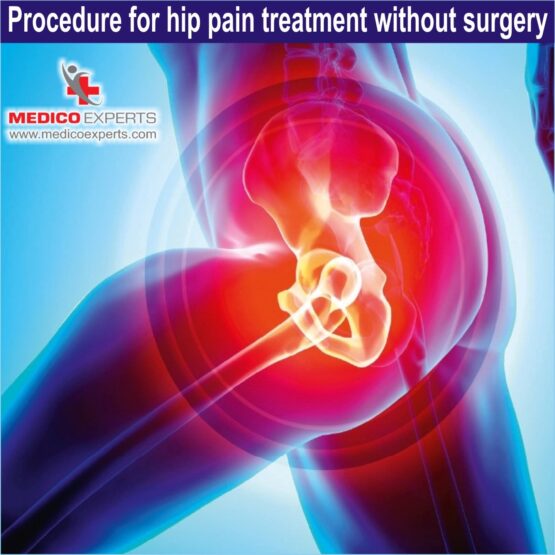
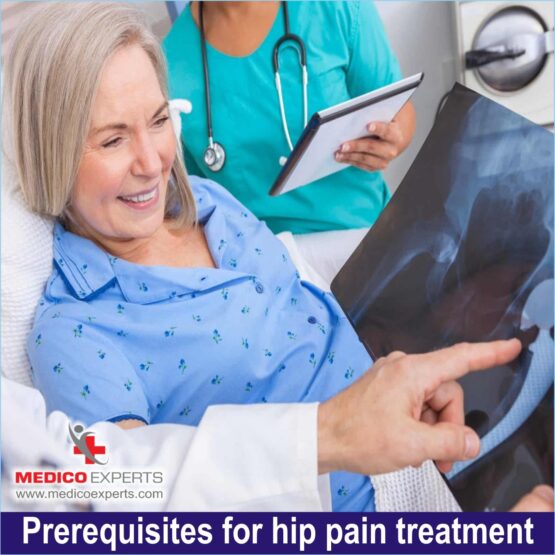
Prerequisites for hip pain treatment
Stem Cell Therapy does not have a restriction on who can receive the treatment; it is left to the doctors and the patients to decide since this is an alternative therapy.
Stem Cell Therapy is recommended for the following cases:
- Patients with early arthritis.
- Young patients with mild osteoarthritis or cartilage damage
- Healthy patients with relatively less cartilage damage
Stem Cell therapy can help treat patients suffering from the following knee injuries and conditions:
- Early arthritis / Osteoarthritis
- Hip labral tear
- Hip Instability
- Traumatic Hip injury
What are the expected outcomes of stem cell therapy for knee pain?
- Repair damaged cartilage
- Slow the deterioration of cartilage
- Decrease inflammation and reduce pain
- Possibly delay or prevent the need for knee replacement surgery
- Reduce pain, even chronic joint pain, with less need for medications.
- Increase functionality, range of motion, and flexibility.
- Reduce muscle compensations and risk for future injuries
- Decrease nerve damage
- Return patients to their normal activities as quickly as possible
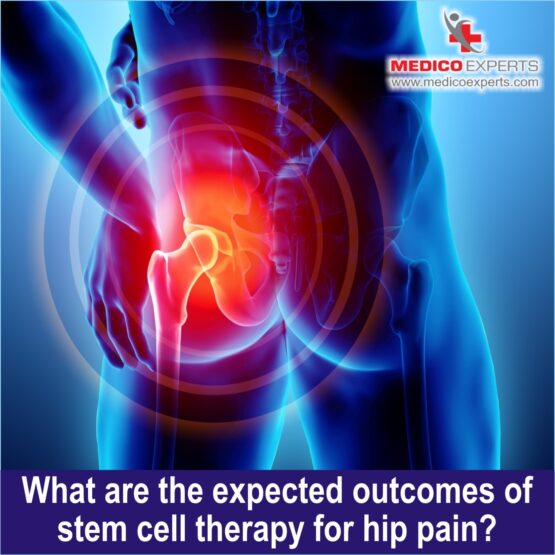
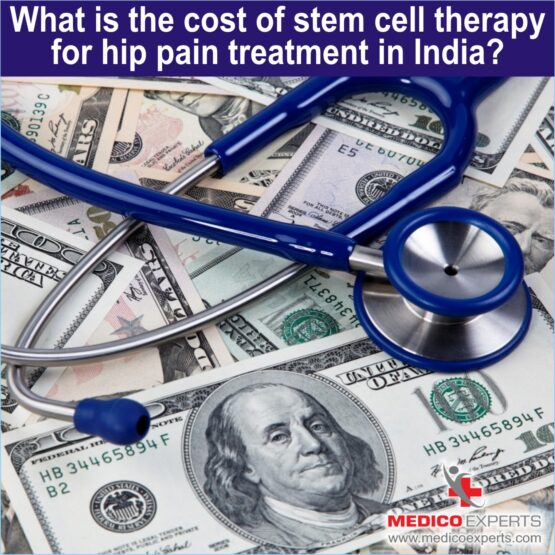
What is the cost of stem cell therapy for hip pain treatment in India?
India is one of the most cost-effective and result-oriented destinations to choose to undergo stem cell therapy. With the availability of state-of-the-art hospitals, the best stem cell experts, and excellent infrastructure at par with international standards, you also get affordable and trustworthy.
The stem cell therapy for hip pain treatment in India is based on the patient’s requirements and medical condition.
The cost of stem cell therapy for hip pain treatment without surgery in India starts from USD 2000 per cycle, depending on the patient’s current condition, treating doctor, and suggested treatment protocol.
A stay of 12-15 days in the country is required for the entire treatment, and in some cases, the stay may be extended to 45 days as well.
Frequently Asked Questions and patient concerns:
1. Does stem cell therapy work for hips?
A stem cell hip treatment offers a viable treatment option for patients suffering from chronic hip pain and discomfort who wish to avoid hip surgery.
2. Is stem cell therapy for hip bursitis?
Yes, stem cell therapy is for hip bursitis treatment.
3. Does stem cell therapy work for hip osteoarthritis / arthritis ?
The efficacy of stem cell therapy for hip osteoarthritis/ arthritis is still being studied and some studies have shown promising results.
It is important to consult a qualified medical professional and obtain a thorough evaluation before undergoing stem cell therapy.
For more information do read the below article.
How to avoid knee and hip replacements surgery?
4. What is the current status of Stem cell therapy from the regulatory framework?
The stem cell-based therapy is in the research phase and not yet formally approved by ICMR. However, the application of stem cells, popularly known as bone marrow transplants, in blood-related disorders is approved by ICMR.
Best Doctors for Hip Pain Treatment Without Surgery
Best hospital for hip pain treatment without surgery in India
The best hospitals in India are well equipped with the latest technology and innovations to treat patients with hip pain successfully. Here is a list of our best stem cell treatment hospitals for hip pain in India.

MedicoExperts is a Global virtual hospital which is established to offer quality healthcare services at affordable pricing without compromising the success rates of the treatment.
MedicoExperts is having a network of highly experienced super specialist doctors and well equipped hospitals across the globe and offering second opinion through online video consultation and surgical interventions through its empanelled super specialist doctors at its network hospitals in 17 countries from 3 continents.
By the virtue of its approach and model, MedicoExperts is successfully achieve to deliver
- Latest and most advanced treatments with success rates of international benchmarks.
- Multiple cost options depending upon the hospital facilities, with the same doctor.
- Treatment option in multiple cities/state/countries.
- Trust and peace of mind.
Most suitable for patients who are looking for:-
- Planned Surgeries and treatment from most experienced doctors and at multiple cost options as per hospital facilities with best possible outcomes.
- Second Opinion from expert doctors.
- Complex cases involving multi specialities
- International patients looking for treatment from Indian doctors

Author Bio:
Dr. Khushbu Jain is a dedicated professional with a passion for advancing healthcare through cutting-edge treatments. She has a special interest in researching regenerative medicine and advanced treatment for diseases that are difficult to treat with conventional treatment options. Her deep understanding of these progressive treatments allows her to offer patients personalized and effective solutions for a variety of health concerns.
Content Medically Reviewed By MedicoExperts Editorial & Clinically Review Board
















